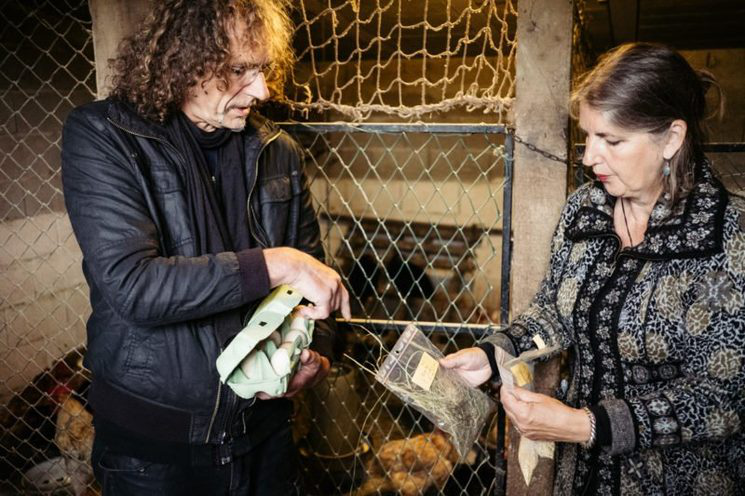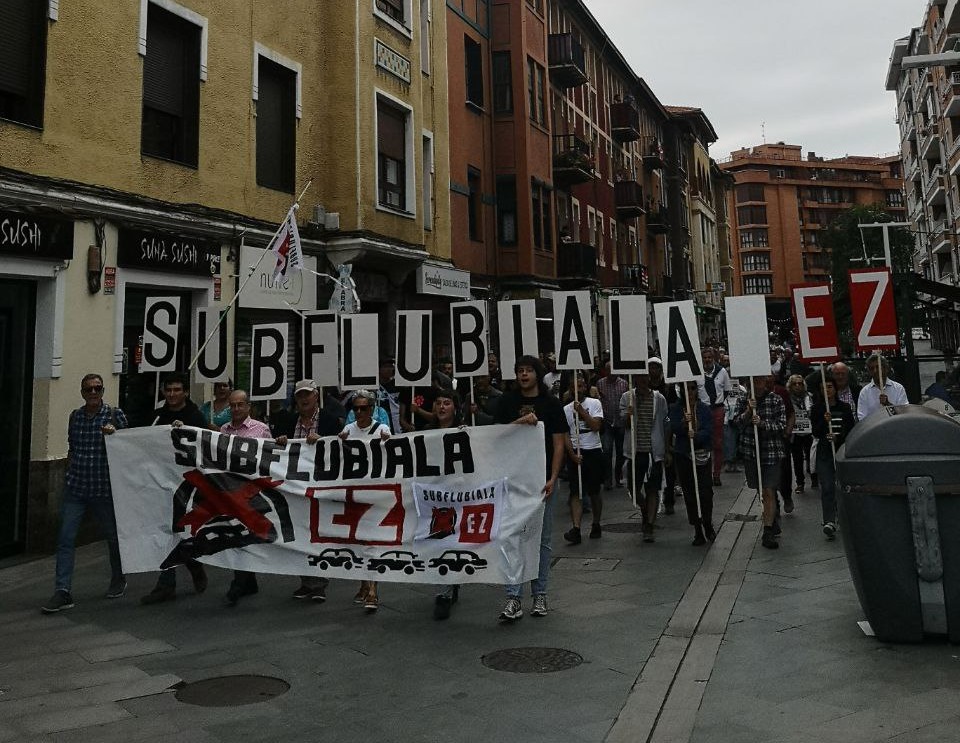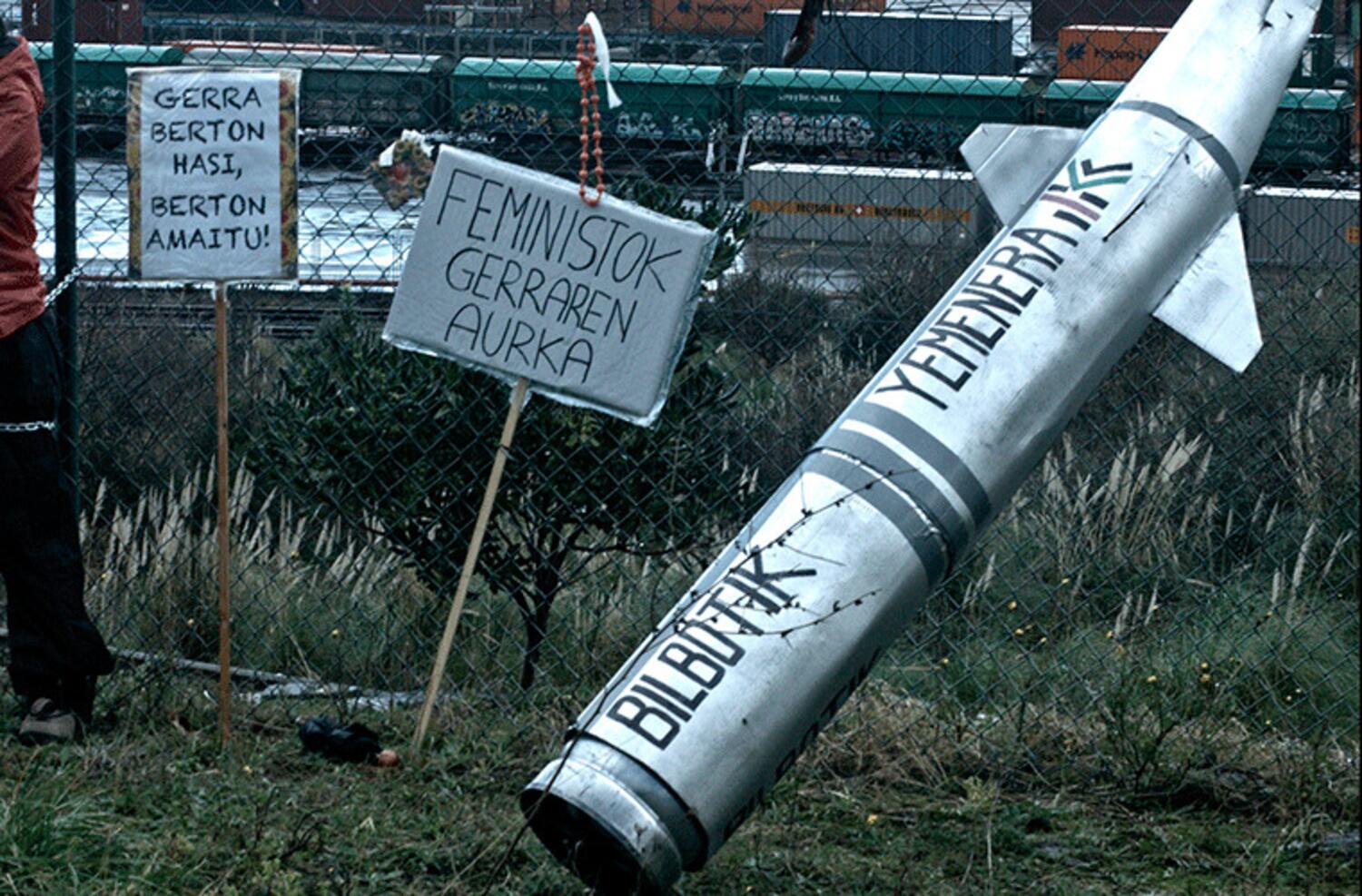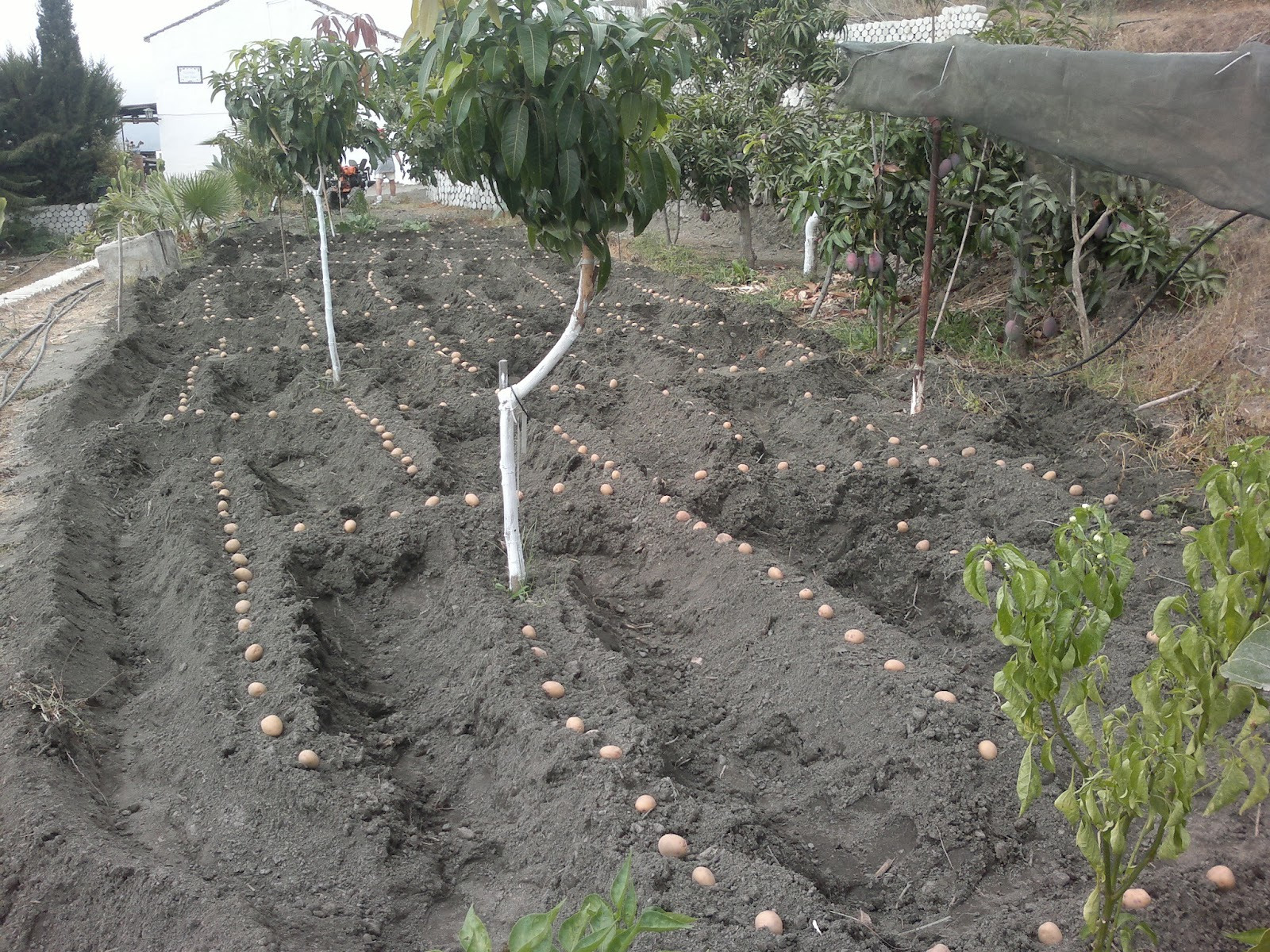"Wind companies are more proud of small towns"
- They are Erramun Galparsoro and Joxe Manuel Muñoz, neighbours of Aranoa, who have died. They have been living in a small town in Navarre, which is about 440 meters high and looks at the sea and has 114 inhabitants, for 22 and 30 years, respectively. The two are part of the recently created Urumearen Mendian Bizirik group to deal with the large wind power plant that Repsol wants to build in the vicinity. They have explained to us how the subject is living in Arano, sitting at a Council table.
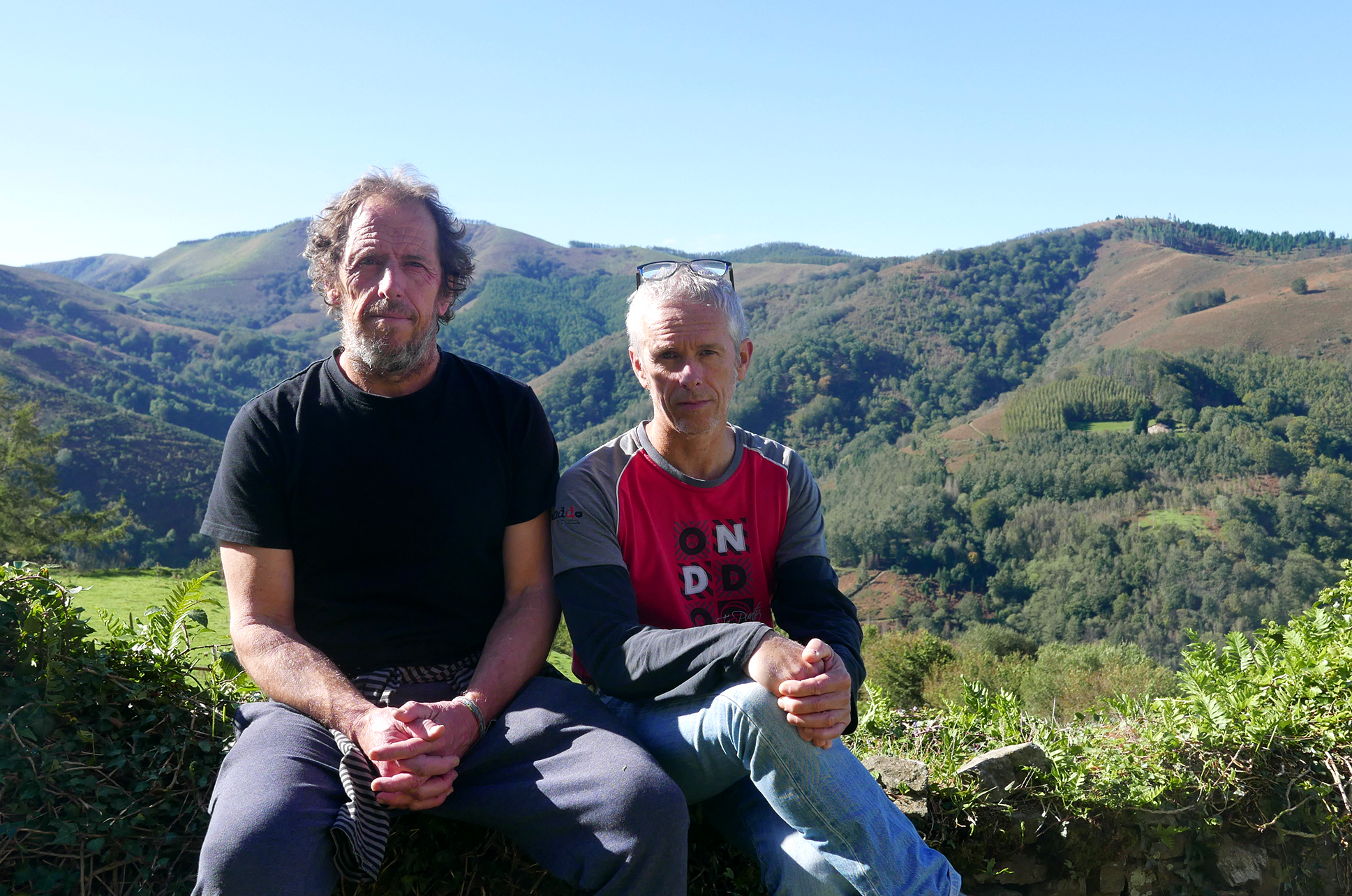
During the summer it has been known that a large wind power plant is being planned in the lands of Arano. How did you get the news?
Erramun Galparsoro: About two months ago, a councilman called me saying that an FE Energy consulting person, on behalf of Repsol, came to offer me a lot of presents for the village and with the idea of installing a wind power plant. A phone call was made asking for the time. Other projects have existed before, but that has alarmed us a lot.
In May, we also heard about another project that is behind Endesa, in this case on the borders of Hernani, but that would be seen from Arano. What link do they have?
Here they were more solemn: 'Do you want a new covered pediment? A sports club?... It was like buying our will. And our request has been to show where the power station is planned. But they have not yet explained us, neither towers, escapes, nor anything" (Erramun Galparsoro).
José Manuel Muñoz: We thought that Arano's was the succession of wind turbines that Endesa wanted to put on the Hernani side. But at the last meeting we were told that they intend to present two projects: one covering everything (Berastegi, Goizueta, Hernani and Arano) and the other just from Hernani. We don't know what connections there are between them, they're big companies, but they seem to be in competition.
It seems hard to believe that they don't share information between them...
Galparsoro: Yes, they behave in a pretty quiet and dirty way. The FE Energetics have had a very different attitude in a town as small as Hernani or Arano. Here they were more solemn: “Do you want a new covered pediment? A sports company?...”, as to buy our will. And our request has been to show where the power station is planned. But they haven't explained it to us yet, neither the towers, nor the escape routes, nor anything.
Muñoz: You realize they're talking about something very hard to sell. They foresee that people will not be happy and that is why they first study the “client” or the victim. Then they offer you what they call “compensations” in a very soft way. Perhaps in a first contact they have received a contrary position, and that is why on the second occasion they have come with another attitude, less aggressive, changing strategy.
Galparsoro: At that first meeting the City Hall said no, that the price was too high to pay.
.jpg)
Twenty years ago there was another project in the area, that of Iberdrola. What interests wind companies?
Galparsoro: The wind, being close to urban areas. If you start thinking, the heights are right to place the towers, quite flat... but you have to go up there, and they have difficult access.
Muñoz: Nor do I believe that it has very attractive features in terms of access. What happens is that when they came years ago, planning and technology weren't that developed, and there wasn't that much public money for this project. They came, took care of the research and were left for later. There were many more suitable places. But if you notice, now the south of Navarre is full of mills, in Álava there is also more than a ghost, because the mountains are very suitable, with easy access. So why here? Because this is already a tsunami. It's a bubble and there's a lot of money at stake.
The report by Mikel Álvarez refers to the environmental and patrimonial impact that it would cause. But how will it affect the people socially?
Galparsoro: There is nothing to measure, I think it would be the disappearance of the people. They are not small towers and the destruction would be great: the noise it causes... The people who live here appreciate the situation and the values of Arano, even if there has been a lot to get down to work. They're in danger of getting lost.
Muñoz: It's hard to understand. When we talk about the damage that wind turbines are going to cause, I think we have to rule out concepts related to the current economy: growth, profits... I don't have to think about how much energy they're going to generate or how much money they're going to bring with taxes. Well, if I look there [the mountains], all that happens to the background, there's no justification, I don't need to get to it. Of course, these are very complex things. We have to defend our opinion before Repsol, but also before the people, and that is the difficulty.
"Why do you want to build here?" Because it's already a tsunami. It's a bubble and there's a lot of money at stake" (Joxe Manuel Muñoz)
There would be doubts and concerns among the citizens.
Galparsoro: One of the concerns is that we refuse and move the facilities away to the limits of Hernani or Goizueta ten meters, if they put it and we run out of nothing?
Muñoz: When they first arrived, they threatened Obama to kill the young woman. In this respect, we are very ill.
How do Aranoarras live?
Galparsoro: The people meet with things that can be arranged around a table, now come, for example, San Martin. Living? As there are currently few people, and on the weekends more, in the Council, in the plaza… We live like in any other small town.
Muñoz: As for mobility, we know that we are at the mercy of oil, because we have to take the car every day. But if someone has to move, we try to go down and share cars through a washaps group. If not, we enjoy the peace of mind here... at least so far.

Have you had any relationship with the people of the neighboring villages?
Galparsoro: We're there. We already had a group to talk about these issues and drive the work together. We have concentrated on this issue. We've been with the experts and I'm also in touch with the experts at Etxalar, and they've all told us the same thing. “Start moving, open the four winds and create the platform as soon as possible.” At first we didn't notice much movement in the mornings, but now some people are worried and we were asked to organize a talk; we tied it to Mikel Álvarez. In Hernani, members of the Sagarreta group are linked to biodiversity and have started to meet to talk about energy sovereignty.
"We are not against energy sovereignty, but here come the giants who believe they can do their business where they want, because they have the law in their favor and have European funds" (Erramun Galparsoro)
What do you know from the Hernani City Hall?
Galparsoro: There is still nothing clear. We know that there are contradictions and we know that in EH Bildu there is a movement that is critical to these issues. We are not against energy sovereignty, but here come the giants who believe that they can do their business where they want, because they have the law in their favour and because they have European funds. In this case, moreover, due to its size, it will be dealt with in Madrid.
Is that why the processing is slower?
Muñoz: We don't know that. They have given us deadlines and told us that the project would be published around the spring of next year. Then it starts a process in which the legs start to tremble, the resources, etc.
Galparsoro: We are not the first in this kind of struggle, and thank you, we are known and helped. In Navarra is Subai Erakuntza, which offers legal advice. But those who want to wind up are not standing. Here they have been doing tests for almost two years, through the Taxus Environment company of Asturias, always going up and down with the car.
Muñoz: I once found them walking down the mountain and spoke. I was told that an environmental impact study is being carried out which requires a minimum period of one year for all times to be collected. We suspect that Tajus must officially comply with this procedure, but that before you start you already know the result, as it is the company itself that hires it.

Arano is located between various natural spaces and is a unique archaeological heritage. Where are you going to turn to?
Galparsoro: This is a hallway, here we constantly see the footsteps of birds, and not just pigeons.
Muñoz: One thing is what heritage we have and another is what protection figure we have. We do not have anything like natural parks or special bird protection areas. The company has told us not to worry. For example, if the law says that the towers must be 500 meters from the megalites, they will put them 700 meters away. How nice... but they'll put them on! With that I do a reading: they think that the two can coexist, a mairubaratza and a few meters from the wind turbine.
Galparsoro: On the one hand there are the technical resources put in by the ministries, etc., and then there will be those who value us most in a second phase, which can be done by Aranzadi, etc. But those investigations are very expensive and we don't have money.
Beyond the large centralized infrastructures, have you analyzed alternatives in Arano?
Galparsoro: We were doing that a few, until it came. I think that this people has possibilities. We're very dispersed and we're very different, but we have to make joint readings, because maybe we're both in tune, but only others see that the bill for light is going to drop them.
Muñoz: It's a profound issue, and I think it's wrong where it started if it comes from the higher classes. Sovereignty is not only the generation of electricity, we also have to reduce consumption, and as is normal in the daily life of many there is no time to reflect on it: from working home late, then family things, the party of La Real… These companies are also used, which have enough time to present them as they want. It's also curious, the reason is always climate change, not the end of fossil fuels. It's going to wipe out pollution and spills, but who believes that?
"These companies also use that, they have enough time to present it as they want. It's also curious, the reason is always climate change, not the end of fossil fuels. It's going to end pollution and landfill -- but who believes that?" (José Manuel Muñoz)
Experts say that the loss of biodiversity also generates climate change.
Muñoz: You have to be disconnected from nature so you don't see it, and unfortunately today there are a lot of people who live offline, even in small villages. In nature everything is connected, we included. As in a puzzle, you take a piece off and take it off to the peak. The worst thing is that this is not ours, but it is up to us to take care of it for those who arrive.
Galparsoro: It is not ours, nor the Araneses, nor the Basques that we now live in... Nature is that of subsequent generations and that of nature.
Do not look for this connection from Ezkio or Altsasu, let alone crossing the Ebro River through Castejón. The connection, or rather the connections, between the Basque Y and the AVE of Navarre is already a reality. It is these links in the plural that should concern us and... [+]
Udaberrian orain dela egun gutxi sartu gara eta intxaurrondoa dut maisu. Lasai sentitzen dut, konfiantzaz, bere prozesuan, ziklo berria hasten. Plan eta ohitura berriak hartu ditut apirilean, sasoitu naiz, bizitzan proiektu berriei heltzeko konfiantzaz, indarrez, sormen eta... [+]
Ohe beroan edo hotzean egiten da hobeto lo? Nik zalantzarik ez daukat: hotzean. Landare jaioberriek bero punttu bat nahiago dute, ordea. Udaberriko ekinozio garai hau aproposa da udako eta udazkeneko mokadu goxoak emango dizkiguten landareen haziak ereiteko.
Duela lau urte abiatu zuten Azpeitian Enkarguk proiektua, Udalaren, Urkome Landa Garapen Elkartearen eta Azpeitiako eta Gipuzkoako merkatari txikien elkarteen artean. “Orain proiektua bigarren fasera eraman dugu, eta Azkoitian sortu dugu antzeko egitasmoa, bere izenarekin:... [+]
Itsasoan badira landareen itxura izan arren animalia harrapari diren izaki eder batzuk: anemonak. Kantauri itsasoan hainbat anemona espezie ditugun arren, bada bat, guztien artean bereziki erraz atzemateko aukera eskaintzen diguna: itsas-tomatea.











